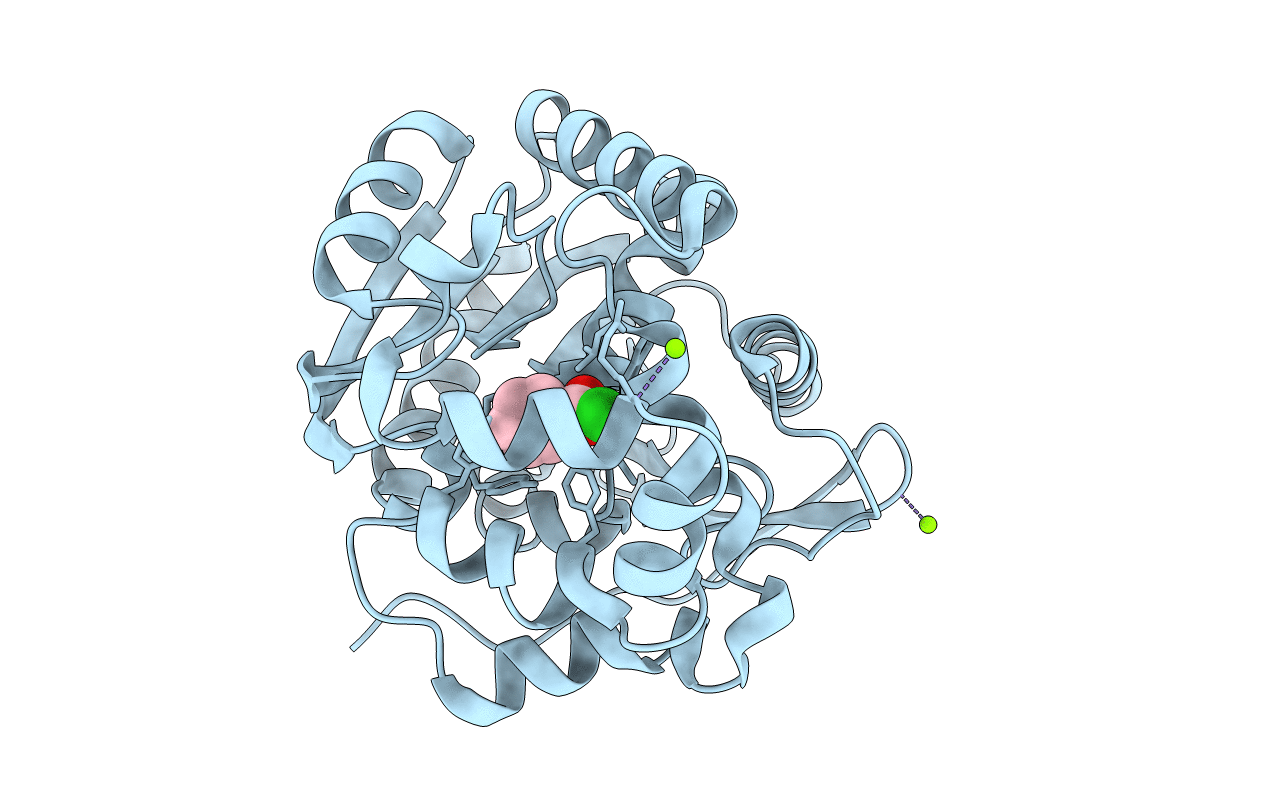
Deposition Date
2008-11-20
Release Date
2009-11-24
Last Version Date
2023-09-06
Entry Detail
PDB ID:
3FBW
Keywords:
Title:
Structure of Rhodococcus rhodochrous haloalkane dehalogenase DhaA mutant C176Y
Biological Source:
Source Organism(s):
Rhodococcus rhodochrous (Taxon ID: 1829)
Expression System(s):
Method Details:
Experimental Method:
Resolution:
1.23 Å
R-Value Free:
0.16
R-Value Work:
0.13
R-Value Observed:
0.13
Space Group:
P 21 21 21


